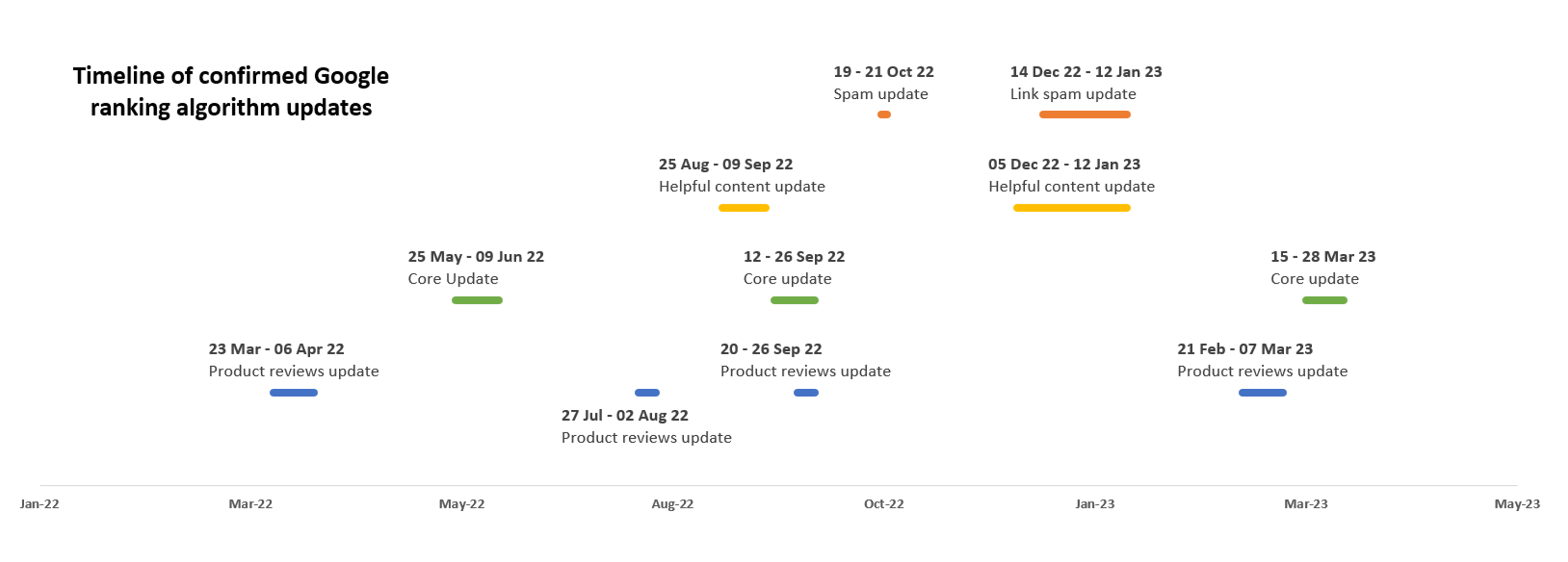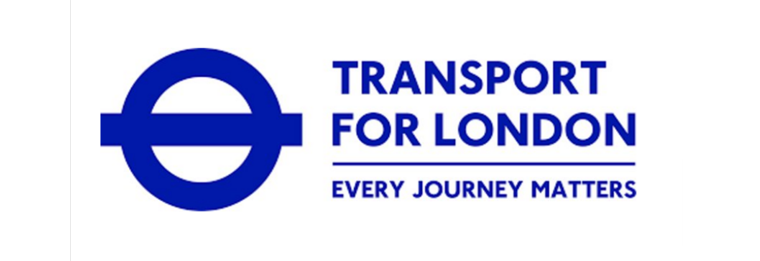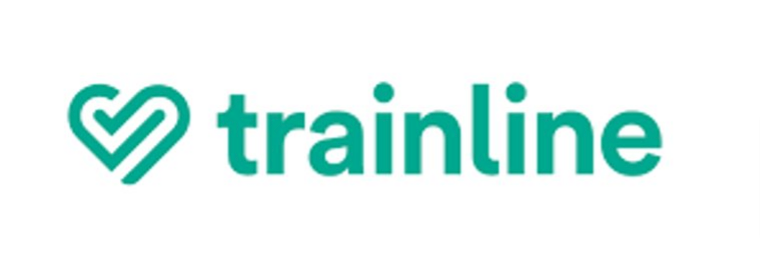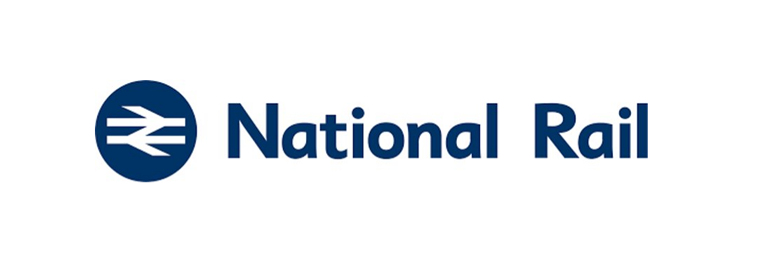Google’s Helpful Content update – what do you need to know?

By Mark Chalcraft|18 Sept 2023
SEO | 4 MIN READ
The next iteration of Google's helpful content algorithm has now arrived, and it may have a knock-on effect on marketing and SEO teams. While Google previously said this update would focus more on lesser-known content creators with direct experience, they now confirm this was not included in the September 2023 update. Some of the content in this article relates to this still-forthcoming update.
If you are unsure what the helpful content update does, let's recap the system and what it does in four chunks.
- Purpose: Rewards better content where visitors feel they've had a satisfying experience. Content that doesn't meet a visitor's expectations won't perform as well.
- Function: The system automatically identifies content with little value, low added value, or is otherwise unhelpful.
- Application: (in three parts)
- The system generates a site-wide signal.
- Entirely automated, using a machine-learning model
- The signal is also weighted.
- Impact: Sites that have content judged to be unhelpful will potentially see two consequences.
- Unhelpful content is less likely to perform well in organic search.
- Additionally, sites with a lot of unhelpful content may see more substantial site-wide effects on visibility.
See: https://developers.google.com/search/updates/helpful-content-update
The helpful content update is one you can mitigate against and, in certain respects, plan for. Keeping on top of things is always a challenge, but undertaking regular content reviews needs to be part of the routine maintenance plan to understand if there is content that could have the potential to dampen visibility and rankings.
Mark Chalcraft, Head of SEO and Content
History of the helpful content system
September 2023
As mentioned above, the increased focus on lesser-known but experienced content creators didn’t make the cut for the September 2023 update, but there are some details that Google has provided about what did get rolled out.
First, they confirmed that content provided by third parties may well be included in the site-wide signals for content generally. Therefore, if you have partnerships or white-label arrangements that function in this way, you need to ensure appropriate governance over content being produced and published in your name. If the content is largely unrelated to the purpose of your site or has little oversight, Google suggests blocking this content from its index.
Second, updates were made to several aspects of their general content guidance. Whether this is directly related to the update or coincidental, there is good advice and questions to consider about why and how your content is produced. We reference some of these below but recommend you review the guidance in full.
December 2022
Extended the system to all languages globally and improved the classifier with additional signals. Little further information was provided. Notably, this update took over a month to fully roll out, likely due to the global expansion.
August 2022
The system's first release into the algorithm mix for English language content. Google's announcement summarised the key points about what the system does, which we've summarised above.
The link with E-E-A-T
Helpful content and E-E-A-T go hand in hand; publishers need to recognise and know this. It breaks down as follows:
- Experience: "Consider the extent to which the content creator has the necessary first-hand or life experience for the topic."
Content creators may lack official qualifications or affiliation but nevertheless have considerable experience, track record, or insight into a topic. - Expertise: "Consider the extent to which the content creator has the necessary knowledge or skill for the topic."
Content from accredited or qualified creators, especially for areas that have additional scrutiny on quality (e.g. health and finance), will have greater trust and weight than those that do not. - Authority: "Consider the extent to which the content creator or the website is known as a go-to source for the topic."
This builds on Google's version of 'hubs and authorities', iteratively working to identify popular, cited and referenced sources. - Trust: The umbrella – a compelling blend of experience, expertise and authority builds trust among users.
Google considers this the most important. It wants the web experience to be good and users to be able to trust sites they discover in search.
The implications for marketing
- Subject matter experts are vital in content production
- Do your staff or contractors have provable credentials in specific subjects?
- Is your site the right place for users to research expert content? Is there demonstrable experience and expertise of practice in a particular field?
- A site's worst content is an anchor on overall performance
- Focusing only on commercial content is a trap; owners need to look site-wide at all content
- The bar is being raised on "great" content
- Content design, informed by user testing and understanding, can give site owners an edge.
- Helpful content is one way for Google to protect quality against AI 'churn'.
- Sites pumping out low-quality content based upon or mimicking the format of existing content.
- The update could spell significant upheaval for sites using this methodology as a 'quick fix' for content.
Protect your site from helpful content updates
Knowledge of Google updates
Google may be testing new features daily, but it only confirms a small number of specific (if not seismic) updates. This classic Google obfuscation makes it incredibly difficult for SEOs and marketers to pinpoint any one change causing issues.

- Many official updates have extended roll-out periods and overlap each other, making it difficult to determine what exactly impacted a website if effects are noticed.
- Google makes many daily updates that it does not advertise, potentially impacting a site for which content quality filters have been 'tripped.'
- The helpful content may not be real-time. Like Core Updates, it may require a further update to re-run before content is reassessed. This makes addressing content that might fail 'helpful' assessments imperative before it becomes a liability.
Helpful content sometimes isn’t the usual suspects
Many websites have a substantial influx of new users daily. To build trust with an organisation or business they have never visited before, users need evidence to:
- Objectively establish the reputation of a site/business
- Understand the relevance of its expertise.
- Determine sentiment/popularity within the topical area.
Users will subconsciously pick up much of this through the design, clarity, information, attention to detail and other factors that might alert or reassure them.
Search engines must do this too, but with entirely mathematical processes – effectively a glorified calculator.
For example, which of the following would you trust to get train ticket information from?
 |  |  |  |
| 1 | 2 | 3 | 4 |
Naturally, users will gravitate to options 1, 2 and 3. After all, they are known authorities; they sell tickets, so they should be able to provide helpful and valuable information about them, correct?
Well, no. Each of these sites exists to sell tickets for its organisation, which is a distinct goal of providing the most helpful content to users. They are commercially driven.
The correct answer is 4. Our friendly blogger (from https://www.seat61.com) is genuinely helpful. He is an experienced ex-rail industry employee and train travel enthusiast, advising customers on securing the cheapest tickets that you will not find on any of the purchase options of the industry sites.
This illustrates how 'experience' can play a critical factor in helpful content and shift perceptions of what is and isn't an 'authority' site. Our seat 61 blogger may not be a recognised train firm, but it is far more helpful to customers who want the cheapest ticket for their travel.
This site fits the criteria as one that could benefit from the next update. As iterations of the update come to pass, you can expect genuine 'helpful content' to rise to the top. In contrast, the content-farmed guff that plagues the internet will (hopefully) get caught, and its visibility dampened.
Mitigating fallout from the update, knowing if you have poor content
Can you, should you? In an ideal world, you'll be undertaking regular content audits and have identified areas of concern from quantitative data from multiple data sources. At the very least, marketing teams should look at what content is or isn't working. A content audit will assist in obtaining this information; for example, you might ask questions like:
- Are there 'thin' pages that don't add much value or insight?
- Are there pages that have content for the sake of it rather than geared to providing value to users?
- Are readability and accessibility an issue?
- What credentials or evidence does the content present to showcase the credibility of your business?
As well as looking at what content is popular (and which isn't), the process should assess user intent alignment. Does it satisfy the intent of the user? For identified problem areas, undertaking user testing will help gain valuable feedback on the shortcomings of the existing content and help gain suggestions to improve content directly from users.
- Do users 'drop out' of your conversion funnels?
- Are there 'dark patterns' that frustrate or confuse customers?
- Can users easily find what they are looking for and make qualified decisions?
- Is there positive sentiment about content and/or services?
With the helpful content update coming down the road, it is far better to be ahead of what is known to be coming and not face the spectre of playing a game of recovery.
Are you worried about the forthcoming helpful content update? Do you need help in understanding and knowing if your site is at risk of this Google update? Contact us for help.
